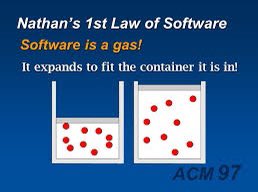The number of pets that we spot while morning and evening walks have noticeably increased over the last few months. These companions are great in emotional support, and a natural therapy for 🧠
More from Sajal Kapoor
Still waiting for those ~5 to go bankrupt. Future is unpredictable. We only need a few 100x over 15Y.
Tail-events generate the biggest panic and upside. If you survive the panic w/o jumping off the train, you deserve the 100x in few stocks.
Temperament + Business Analysis = ⤴️
Tail-events generate the biggest panic and upside. If you survive the panic w/o jumping off the train, you deserve the 100x in few stocks.
Temperament + Business Analysis = ⤴️
@unseenvalue Hats off Sir. I compared an equal weighted portfolio of your stocks above to the 2 Coffee Can stocks Abbott & Divis and your portfolio has delivered significant upside since then
— ML4TradingDoctor (@DrKRIndia) May 16, 2021
Key has to be conviction and equal weighting pic.twitter.com/6dJ1LDMSYr
Top 5
The Almanack of Naval Ravikant
The Psychology of Money
The Wealth of common sense
Masterclass with super investors
100 Baggers
The Almanack of Naval Ravikant
The Psychology of Money
The Wealth of common sense
Masterclass with super investors
100 Baggers
Which are the books in your re-read list?
— Investment Books (@InvestmentBook1) October 8, 2021
Mine as Follows \U0001f447
The Psychology of Money
The Wealth of common sense
100 Baggers
Once upon a wall street
Masterclass with super investors
Atomic Habits
Richer, Wiser, Happier
More from Ideas
1/ A orders chips. Supplier says "supply is getting tight." A triples order to store them in a warehouse. Supplier tells other customers supply is even tighter. They order extra chips. Quickly there are more chips in warehouses than toilet paper in garages during the pandemic.
2/ Intel's Gelsinger: "I don’t expect the chip industry is back to a healthy supply-demand situation until ’23. For a variety of industries, I think it’s still getting worse before it gets better.”
Are chips in warehouses the prime cause of the shortage? No. Demand is higher.
3/ "Software eating the world" means rising demand for chips.
I'm skeptical that this increase in chip demand is "transitory."
Fabs and backhoes don't increase with Moore's law. https://t.co/m7ZreQTzow

4/ If you invert Nathan's 1st Law:
Software can't expand faster than the chips and memory that enables its magic.
Broadcom's CEO believes chip production is a mature industry that will return to lower growth. I disagree in the medium term at least.
2/ Intel's Gelsinger: "I don’t expect the chip industry is back to a healthy supply-demand situation until ’23. For a variety of industries, I think it’s still getting worse before it gets better.”
Are chips in warehouses the prime cause of the shortage? No. Demand is higher.
3/ "Software eating the world" means rising demand for chips.
I'm skeptical that this increase in chip demand is "transitory."
Fabs and backhoes don't increase with Moore's law. https://t.co/m7ZreQTzow

4/ If you invert Nathan's 1st Law:
Software can't expand faster than the chips and memory that enables its magic.
Broadcom's CEO believes chip production is a mature industry that will return to lower growth. I disagree in the medium term at least.
You May Also Like
“We don’t negotiate salaries” is a negotiation tactic.
Always. No, your company is not an exception.
A tactic I don’t appreciate at all because of how unfairly it penalizes low-leverage, junior employees, and those loyal enough not to question it, but that’s negotiation for you after all. Weaponized information asymmetry.
Listen to Aditya
And by the way, you should never be worried that an offer would be withdrawn if you politely negotiate.
I have seen this happen *extremely* rarely, mostly to women, and anyway is a giant red flag. It suggests you probably didn’t want to work there.
You wish there was no negotiating so it would all be more fair? I feel you, but it’s not happening.
Instead, negotiate hard, use your privilege, and then go and share numbers with your underrepresented and underpaid colleagues. […]
Always. No, your company is not an exception.
A tactic I don’t appreciate at all because of how unfairly it penalizes low-leverage, junior employees, and those loyal enough not to question it, but that’s negotiation for you after all. Weaponized information asymmetry.
Listen to Aditya
"we don't negotiate salaries" really means "we'd prefer to negotiate massive signing bonuses and equity grants, but we'll negotiate salary if you REALLY insist" https://t.co/80k7nWAMoK
— Aditya Mukerjee, the Otterrific \U0001f3f3\ufe0f\u200d\U0001f308 (@chimeracoder) December 4, 2018
And by the way, you should never be worried that an offer would be withdrawn if you politely negotiate.
I have seen this happen *extremely* rarely, mostly to women, and anyway is a giant red flag. It suggests you probably didn’t want to work there.
You wish there was no negotiating so it would all be more fair? I feel you, but it’s not happening.
Instead, negotiate hard, use your privilege, and then go and share numbers with your underrepresented and underpaid colleagues. […]






















